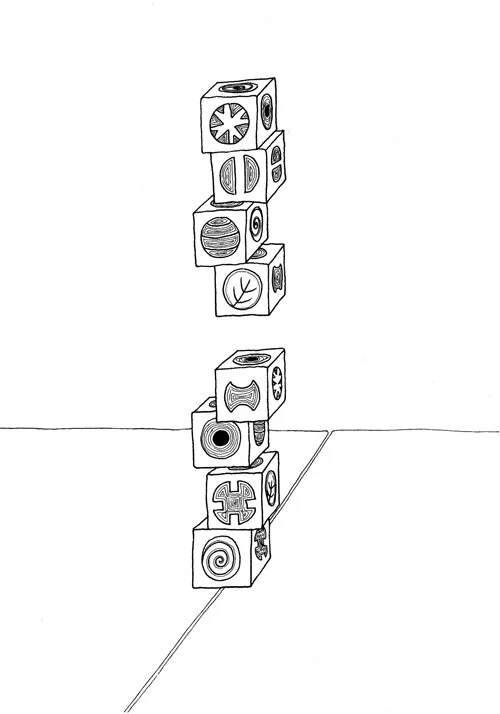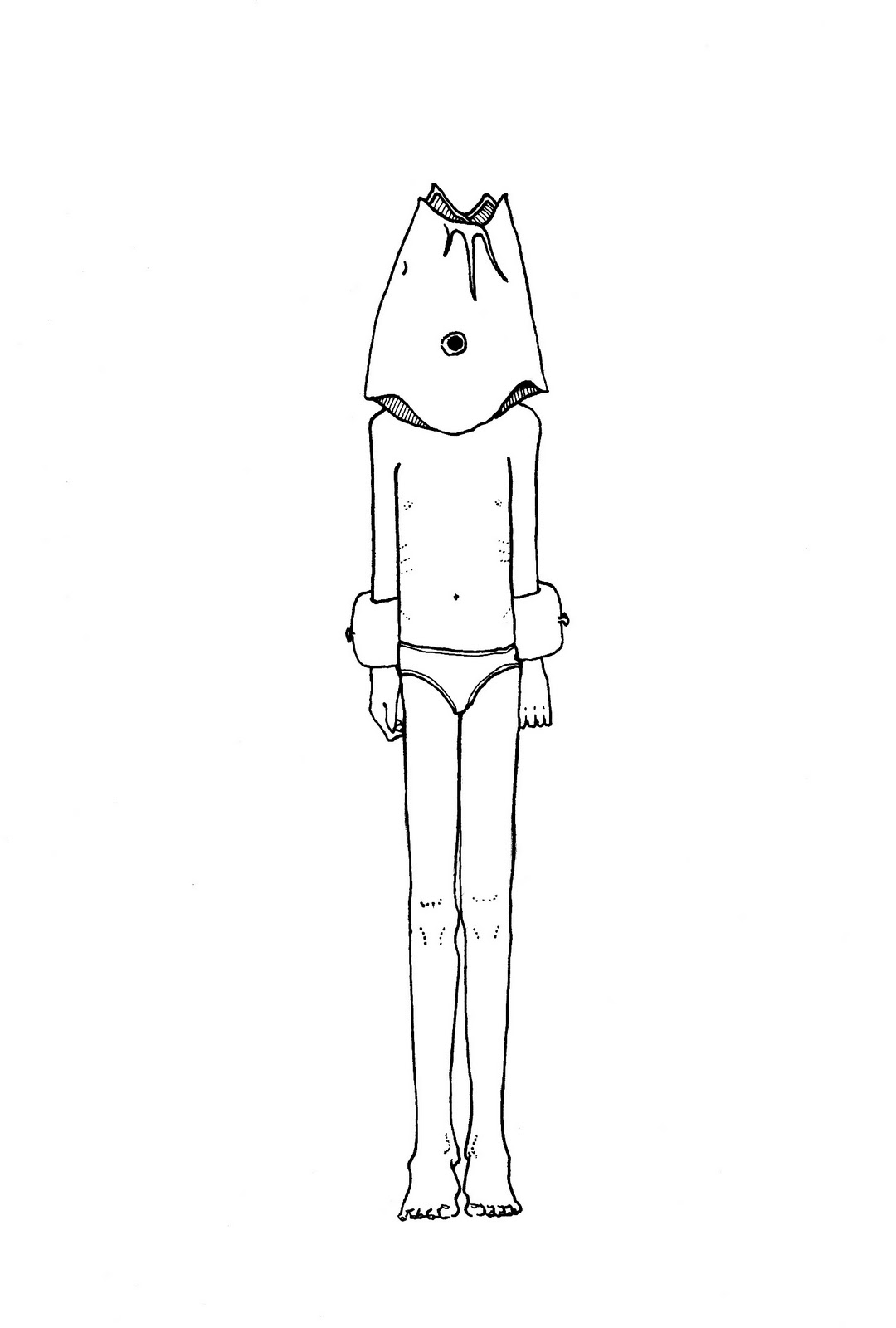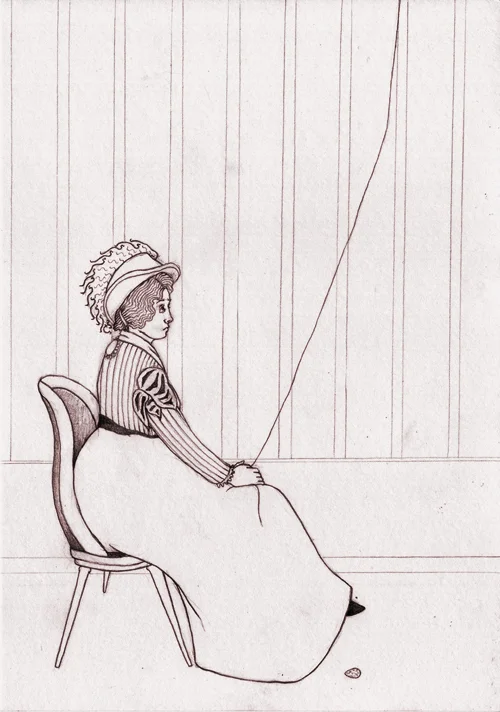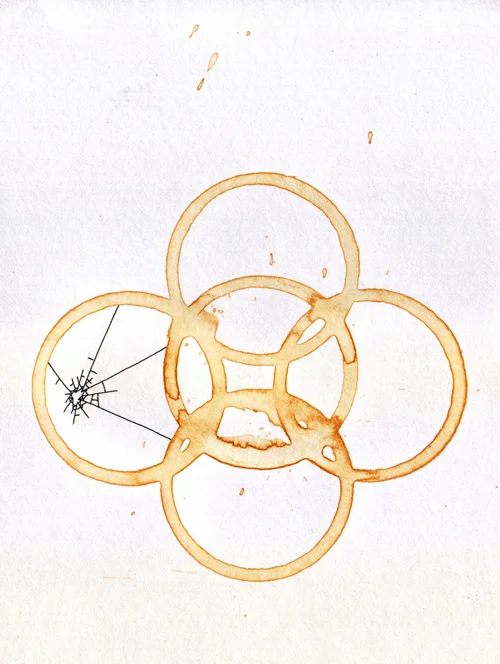On August 6, a storm front had lurched over the San Juan National Forest and poor Adrian Frausto got caught in the middle of it. Forced to get a very late start south to speak at a corporate entertainment conference in Albuquerque, and very late for reasons he would rather not dwell on, Frausto had the terrible luck of hitting those mountains right as the storm did. If he had just left a few hours earlier, he swore to himself as he gripped the steering wheel, he would not be here.
But alas, there he was, in the horrific blackness and pounding rain. In the goddamn San Juan National Forest. In the worst possible place one could be, at 11:08 p.m., in a beat-up 1994 Ford Escort, in the rain so thick and heavy he had to depend as much on lightning flashes for a sense of the road as on his feeble headlights — there he was.
And no one else, apparently. He saw not a single other car.
"If I die out here," Frausto said aloud, almost yelling at the rain, "if I die out here..." This wasn't exactly a complete thought, just an expression of exasperation and fatigue, not unlike a cartoon school principal shaking his fist in the air and yelling the name of that one mischievous student who thwarted administrative efforts again.
54, spouseless, and getting older, Frausto knew these were not the best days of his life, and if he had to die out here in the goddamn San Juan National Forest, alone in a tweed suit on the way to a less-than-thrilling conference, well, fuck, then life must be completely meaningless after all, he reasoned. "At least get me to retirement," he said, aloud again, with the even more fatigue.
Frausto was sort of used to these long commutes, though, and had become accustomed to driving the curvy Colorado roads at night. He had driven the 550 plenty of times before, often with hardly any caffeine or wakefulness in his system, and had made it out without a scratch. His coworkers didn't quite know how he did it, and would marvel, "Adrian, you sure are one ballsy guy for driving the 550 at night, I could never do it.” He thrived off their break room compliments.
But tonight was looking a little different. This rain would not let up, and the lightning gave him the jitters. The black, sharp shapes of trees horned the crooked mountains.
So he got to thinking of more pleasant drives to take his mind off this one. He thought back to being young and taking cruises out in Montana. Back then, there were no speed limits. He'd be veering around those mountain roads with the top down, hair blowing back, sunglasses on and not a thought beyond the road directly ahead. Once he and a fellow speed demon shared the road and the two were hitting over 100 MPH, blazing on the asphalt with huge grins, and not another soul in the world knew that kind of freedom and adventure and carefree—
Just then, out of the rain and into the middle of the road, wandered an elk. The elk stopped and stared, green-eyed, into the oncoming headlights. Frausto let out an "Oh, fuck!" and tried to swerve, but it was too late. Car hit elk, and in one quick instant of sprayed glass and bent metal and the loudest thud, machine and animal were united, and the car spun into a side rail. Frausto felt for one sickening second the sensation of bloodied fur against his face, and then with another jolt he heaved forward and discerned, between a mess of rain and metal, the oncoming trunk of a tree.
The next thing Frausto knew, the world was all blown-out white and swirling spectral shapes. Weird lights passed him like oncoming high beams. He was airborne, as far as he could tell, vaulting towards a swelling brightness, hurtling with strange but familiar voices, sounds, and memories zipping past. He flew closer and closer to the target, and then he was there.
Frausto was in a new place now. He looked first at his hands, and saw no scratches; he clasped his chin, expecting glass shards or elk fur, but felt only his skin. His suit was pressed and unharmed.
That intense, holy light was gone. Now he sensed he was under the buzz of 7-11 fluorescence.
Where was he? Some kind of convenience store? How'd he get here? He saw around him shelves and shelves of little trinkets and things, postcards and air fresheners and toys. A smiling man stood at a cash register in the center of the store, eyeing Frausto.
"Let me know if you need help with anything," the man said.
Frausto nodded and, feeling the cashier's eyes upon him, started looking around. There were some postcards — Colorado, Montana. "Okay, so I'm still in Colorado," he said, and felt both a little relieved and a little defeated. He sure hoped he wasn't still stuck in those mountains. He saw a postcard for Albuquerque.
On the next shelf he saw little action figures and toys. There was a little Jesus, a Virgin Mary icon. All kinds of saints and saviors, actually. What kind of place was this?
"Excuse me," Frausto said, turning to the cashier. "Maybe you could tell me where I am. I got into a car accident last night and don't really know how I got here. Do you guys have a phone I could use? I need to get to Albuquerque."
"You are where you need to be," the cashier said, smiling.
"I'm in Albuquerque?" Frausto was not exactly sure what to make of this situation. "Well, could you direct me to the Hyatt Regency?"
"You can't get there from here," said the cashier.
Frausto huffed. "Listen, uh —" He scanned the man for a nametag. Simon Peter, the nametag said. "Uh, Simon, listen, I don't know how I got here but I just need to get to a conference, I'm running late. Could I use your phone?"
"No phone here," Simon Peter said. "Look around, take your time."
"Listen, pal, no disrespect but I don't have the time to buy anything right now. You guys have a map of the city, maybe? Know where I can catch a cab or a bus, maybe?"
"I'll see what I can find," Simon Peter said, and went searching under the counter for something.
Frausto, hands on hips, tapping his foot, surveyed the room again. Something caught his eye: portraits of himself, all arranged on a shelf. There was Frausto in his high school graduation photo, there was Frausto in the mid 90s with a prize largemouth bass, there was Frausto's driver's license photo. Each picture sat adorned in a lavish, golden frame. "Deluxe Decorative Frames: $20" a price tag read.
"Excuse me," Frausto said, turning to Simon Peter. "How'd you guys get my photos over there? What's going on right here?"
Simon Peter was still busy searching for a map.
Feeling a little fed up, Frausto started to pace around the room. He passed a rack of t-shirts, the visible ones advertising the Mountain Adventures Summer Camp he went to as a kid, near Telluride. He passed a crate of records and espied some of his favorites: Hall & Oates' Private Eyes, The Eagles' Hotel California, the Mamas and the Papas' If You Can Believe Your Eyes and Ears, all classics, priced between $10-$40 depending on the pressing. He saw a paltry assembly of pictures, “Most-Liked Social Media Photos: $5-$35,” memorializing corporate conference staff photos in which he was but barely featured. He saw a cookbook emblazoned with a picture of his mother — his mother?! — entitled, "Just Like Mom Used To Make," discounted at $7.
"Hey," Frausto said. "Could you please tell me where the hell I am? Where is this place?"
"The souvenir shop," Simon Peter said, as if it were obvious.
"What are you talking about?"
"This is the souvenir shop of your life."
"Uh." Was this a dream? "Look, pal, I need to get to the Hyatt Regency."
"You don't understand? You are not going there — they are no longer expecting you. You're here now. Look around, take your time. Let me know if you need any help!" Simon Peter beamed.
"I—" Frausto thought. The rain, the elk, the car. "Am I dead?"
"Yes." Simon Peter maintained his serene smile.
"I...” Frausto looked at his fingers, remembering faintly the feel of steering wheel between them. “I died in that car accident, didn't I?"
"Yes."
"With the elk."
"Yes."
"You've gotta be kidding me."
"No."
"I don't even —" Frausto could hardly speak. This had to be a dream. "So if I'm dead, when do I get to Heaven, huh? Or Hell?"
"This is the afterlife."
"This?"
"This is it. Welcome!"
"This? You've gotta be fucking kidding me."
"No. We offer the finest in keepsakes and remembrances. Here you can remember all the highlights of your life, to purchase and cherish for the remainder of your eternity."
"So..."
"Think of life, the life you just finished on Earth, as the ride, and this is the gift shop that follows. Here, this is a big seller," Simon Peter said, and pulled up a green shirt with the words: I DIED AND ALL I GOT WAS THIS LOUSY T-SHIRT. "Really hilarious! Only five bucks, too."
"Get me out of here."
"Or, just for you, we have a special going on. Buy a 1994 Ford Escort HotWheels and receive a free stuffed elk!"
Frausto snapped. He reached over the counter, grabbed Simon Peter by the collar, and delivered a few quick blows to his saintly face.
"Stop it, please!" Simon Peter yelped. "Don't make me call the Manager."
"Oh yeah? Oh yeah? What's he gonna do about it? You scum bag!" Another punch.
"He'll send you to Hell."
"Oh yeah? And what's Hell like?"
"It's like this, but with long lines, poor service, and nothing you want."
"So it's just another store."
"Yes, higher prices too, and a lower spending limit. Here in Heaven we offer a generous cap of $40 per afterlife, as opposed to their hellish $10. Believe me, this is the better deal, Adrian. So how about that special I mentioned?"
Frausto collapsed. Life was even more meaningless than he had thought. Life was a lonely trail that lead to a lonely death in the mountains and now he was meant to pretend like that shit mattered. For eternity.
"What do you think, Adrian?"
"I'll get that fucking recipe book," he conceded.
"Great! Here, it's seven now, but I'll make it five for you. Throw in some beef jerky, too, since I know you love that. See, you wouldn't get this kind of service in Hell, would you?"
"No. I guess not."
Defeated, Frausto handed over five dollars — all he had in his wallet — and got in exchange his mother's recipes and a pack of beef jerky, carried in a commemorative plastic bag.
"Anything else you'd like to recollect? We want to ensure you have the most heavenly of reminiscences possible in your prolonged stay here.”
“Just get me out of here,” Frausto said.
“No problem! The exit is that way.” He wrote down Frausto's name in a log behind the counter, then smiled again. “It was a pleasure doing business! Now enjoy your personal heaven with your recent purchases."
Frausto exited through doors, which shut loudly behind him. After a few steps, he turned, wondering if maybe a vinyl record could be bargained, only to see his shop had already evanesced. In its place stood a new store housing new souvenirs as a newly dead couple milled about, browsing their options. There was no way back in.
Frausto sighed and walked out onto an eternal plain of clouds, a fluffy white rolling valley that stretched further than he could see. The heavens were dotted with many other dead, sitting with their few souvenirs, staring down at the world through breaks in the clouds. He walked, slowly and dejectedly, ready to cry.
"Hey," came a voice. It was a younger man, maybe in his late 30s, wearing one of those souvenir t-shirts. "You new around here?"
"Just died," Frausto said to the stranger.
"Sorry to hear it."
"Yeah. Car accident."
"Doesn't sound so bad."
"It was quick. You?"
"Stage dove during a show and no one caught me."
"Those assholes."
"Tell me about it."
Frausto sat next to his newfound friend. "So this is heaven, huh?"
"Pretty much. I got a picture of Amelia... was surprised to see that in the store. Lost my virginity to this chick."
"Nice."
“And this one,” he said, holding another portrait of a different young woman. “I don't know who she was. But she smiled to me at the concert as I got on stage. She had a nice smile. I wonder how she's doing now.”
“Guess you'll never know,” Frausto said.
The young man shrugged. “The memory's enough,” he said.
The two stared down at the planet below where people were living their lives, unknowing of the afterlife that awaited them. Through the clouds Frausto could espy the Rocky Mountains, whose craggy indifference shadowed perhaps a cleanup crew or a news crew dutifully detailing his wreckage as passersby drove past, speeding towards the fulfillments of their days. "What a complete fucking joke," Frausto said.
"Yeah," the stagediver said.
The two sighed. Behind them heaved the repeating sound of closing doors as more dead exited through their personal gift shop, cheap keepsakes in hand, eternity looming ahead.







